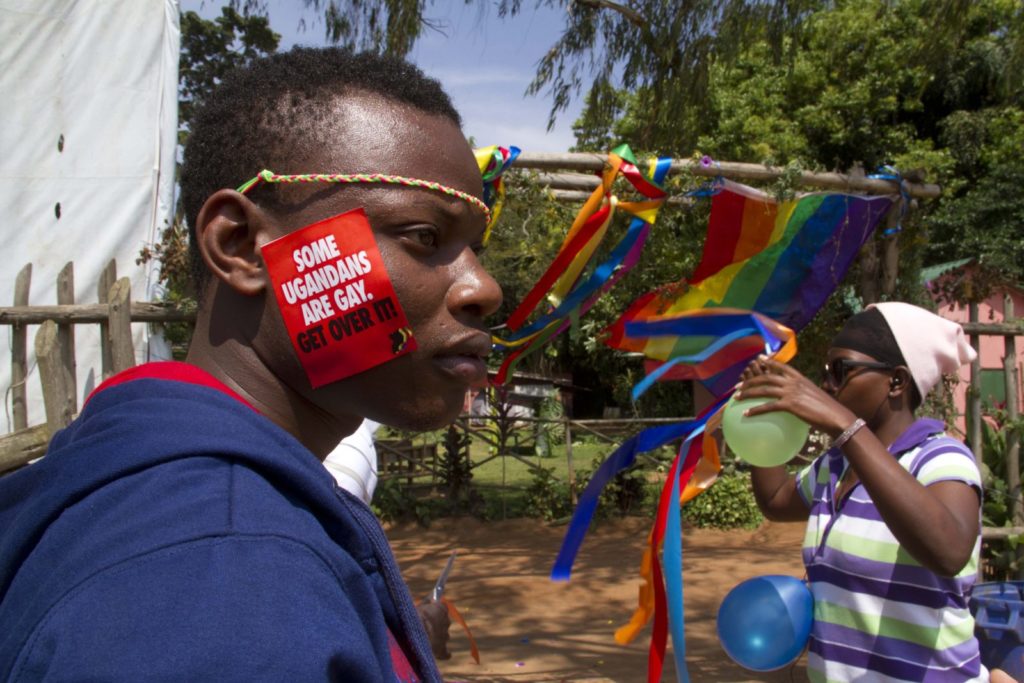Ugandan president Yoweri Museveni rejects horrifying bill defining anal sex as ‘unnatural offence’

Ugandan president Yoweri Museveni has refused to give his assent to a reviled, anti-LGBT+ bill. (BADRU KATUMBA/AFP via Getty Images)
Uganda’s president Yoweri Museveni has rejected a bill that would have doubled down on the country’s already scathingly anti-LGBT+ laws.
On Tuesday (17 August), Museveni refused to give his assent to the Sexual Offences Bill which was passed by parliament earlier this year.
As much as lawmakers touted the bill as a way to address a wide range of issues impacting women, activists see it for what it is – a backdoor reintroduction of the chilling “Kill The Gays” bill.
Among the bill’s proposals, condemning same-sex couples who perform acts against the “order of nature” or anal sex between people of any gender with 10 years in jail. Much of the bill is already in law, instead of packing together sections of legislation first enforced by British colonial law.
For this reason, Museveni ordered in a letter to speaker Jacob Oulanyah that the bill be returned back to the Legal and Parliamentary Affairs Committee for review to address such redundancies.
Uganda’s president Yoweri Museveni refuses to give assent to anti-LGBT+ bill
“I have received the Sexual Offences Bill 2021 for assent,” the letter read according to Monitor.
“However, the Bill needs to be reviewed because there are several provisions of Act that are already provided for in the legislation,” Museveni wrote, referring to a raft of policies listed under “sexual offences”.
“All the above offences are already provided for in the Penal Code Act Chapter 8 on the offences against morality.”
“The president has done so [returned] in respect with the Sexual Offences Bill,” deputy speaker Anita Among added.
In doing this, Museveni has thrown the future of the bill into uncertainty. He called on the committee to “review all the criminal laws and propose comprehensive amendment of relevant laws” rather than simply tacking on “piecemeal amendments”.

A Ugandan man with a sticker on his face takes part on August 9, 2014 in the annual gay pride in Entebbe, Uganda. (SAAC KASAMANI/AFP/Getty Images)
The Sexual Offences Bill was immediately slammed by top human rights groups, including the United Nations’ human rights chief and the Human Rights Watch, when lawmakers first tabled it in 2015.
A broad bill, its main focus is clamping down on sexual violence while dialling up punishments for sexual offenders and better shielding victims from harm, its sponsors said.
But as the UN Human Rights Office of the High Commissioner spokesperson Rupert Colville notes, the “deeply troubling” legislation instead criminalises “consensual same-sex relations, sex work and those living with HIV”.
Many LGBT+ rights groups quickly felt a sense of déjà-vu – the bill’s veracity against LGBT+ people drew comparisons to the “Kill The Gays” bill which sought to introduce the death penalty for queer sex. It was thwarted in 2014 on a technicality before rumours of its revival were squelched in 2019.
Policies in the Sexual Offences Bill that would “raise serious human rights concerns” include treating HIV as an aggravating factor in sexual offence cases, the HRW noted. It also questioned the bill’s rather murky definition of consent.
“Sexual offences legislation should advance the rights of survivors and potential victims of violence,” said the organisation’s Africa director Mauisi Segun, “not enshrine rights violations into law.”

